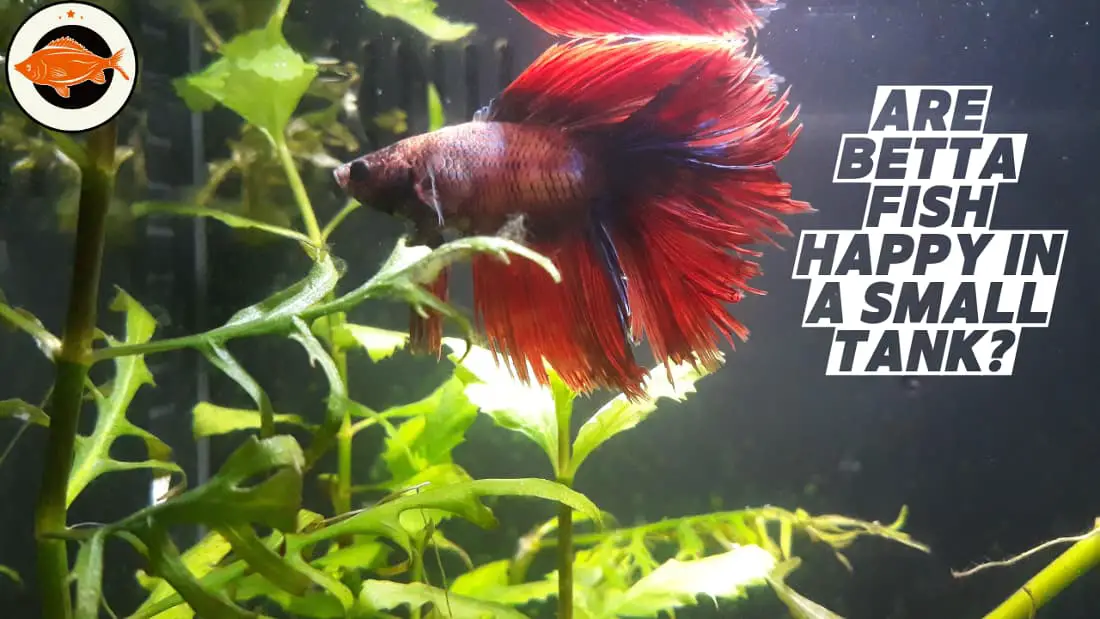Introduction
With their captivating, multi-hued fins and striking individual personalities, Betta fish can provide their owners with an intensely gratifying experience. However, a major concern for Betta fish keepers is choosing the right tank size. This leads to the question, “Are Betta fish happy in a Small Tank?” Understanding and addressing this question is paramount in ensuring your aquatic friend’s health, happiness, and longevity.
• Betta fish do best in tanks of at least 2.5 gallons. Smaller tanks require more frequent water changes to keep water quality optimal. However, many betta fish have been kept for years in smaller tanks or cups.
• Betta fish are territorial and prefer having their own space. A larger tank allows for more swimming rooms and hiding places. But some bettas are happy enough with the limited space of a smaller tank.
• Filtration and heater requirements still apply in small tanks. Bettas need a filter and heated water, even in smaller setups.
• Signs of stress include clamped fins, hiding excessively, not eating, and lethargy. Some bettas may show these signs in small tanks, indicating they need more space. But other bettas will seem content even in small tanks.
• Proper maintenance is key regardless of tank size. Small tanks require more frequent water changes and meticulous maintenance to avoid water quality issues that can stress betta fish.
Part 1: Understanding the Basics
Common Misconceptions about Betta Fish Housing
A prevalent myth surrounding Betta fish housing is that these magnificent creatures can lead a healthy, satisfying life in tiny tanks or jars. This misconception arises from the disturbingly common sight of Bettas contained in cramped spaces in pet stores. This sight misleads many into assuming that a small tank will suffice for a Betta. However, it is essential to understand that survival does not equate to thriving.
Significance of Tank Size
The importance of the tank size chosen for your Betta fish cannot be overstated. It plays a fundamental role in defining quality of life. To put it in perspective, while you, as a human, could technically survive in a closet, would you be comfortable or content? Similar is the case with your Betta fish.
Part 2: The Ideal Betta Fish Tank Size

The Misleading Minimum
Numerous online sources cite a 2.5-gallon tank as the minimum requirement for a Betta fish. While it is true that a Betta can survive in such a small space, it will not necessarily lead a healthy, satisfactory life in such confined conditions. As an owner, your aspiration should not be merely to have your Betta survive; you should aim for it to thrive and enjoy its existence.
The Recommended Reality
To ensure that your Betta fish leads a life filled with vigor and enjoyment, experts suggest a tank size of at least 5 gallons for a single male or female Betta. This space provides your Betta with ample swimming room, closely mimicking its natural habitat. Additionally, a larger tank mitigates the accumulation of harmful chemicals derived from fish waste, reducing the risk of disease and illness.
Part 3: Factors to Consider While Choosing a Betta Fish Tank

Contemplating the Shape
When picking a tank for your Betta, remember that the shape is just as important as its size. In their natural habitat, Betta fish inhabit shallow waters and, thus, prefer more horizontal swimming space. Therefore, a tank that provides a broader swimming area, rather than depth, is preferable for a Betta.
Decorating with Purpose
Decorating your Betta’s tank can be exciting, allowing you to showcase your creativity. However, bear in mind that every piece of decoration added diminishes your Betta’s swimming space. Therefore, while decorations add aesthetic appeal, they should be added judiciously, ensuring ample room for your Betta to explore and move freely.
Lid or No Lid?
A fact that may surprise many is that Betta fish are jumpers. Yes, they are known to leap out of their tanks, often leading to disastrous consequences. Consequently, a tank with a secure lid is a must-have to ensure the safety and well-being of your Betta fish.
Part 4: The Unfortunate Reality of Small Tanks for Betta Fish
Regrettably, the deplorable sight of Bettas confined to tiny cups in pet stores reinforces the misconception that small tanks suffice for these fish. It is critical to dispel this myth and understand that these conditions are neither healthy nor humane for the fish. Larger tanks often result in healthier, happier, and more vibrant Bettas, thus leading to a more rewarding experience for the owner.
Conclusion
The commitment to Betta fishkeeping extends beyond mere ownership. It encompasses a responsibility toward their health, happiness, and overall well-being. Providing them with an adequately spacious tank is the stepping stone to fulfilling this duty. As a pet owner, your goal should be to create an environment where your Betta fish can survive and thrive.
Always opt for a larger tank when possible, as this gives your Betta fish the much-needed room to swim, explore, and grow happily. It is only through these measures we can guarantee a fulfilling life for these beautiful creatures and, in turn, enrich our own pet-keeping experience.

